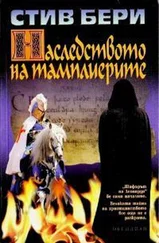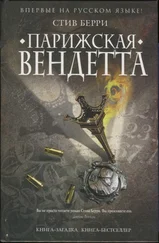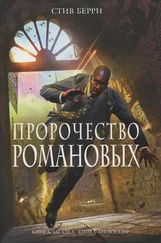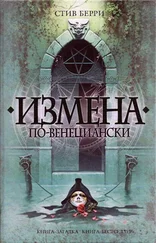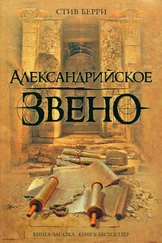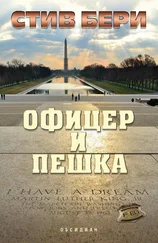“When was the last time you were here?”
“Four years ago.”
“Who else knew of this room?”
“Only Theodor.”
“Seems he now knows all about his mother.”
“He does not know everything.”
Schüb switched off the light and replaced the cupboard. “I have not been entirely truthful with you, Herr Malone.”
“You want to tell me what I think I already know.”
“I am Theodor Pohl’s father.”
“Any doubt?”
“None.”
“Braun knew?”
Schüb nodded. “It is the only reason she carried the baby to term. There was no way she would have birthed Bormann’s child. Of course, she possessed no idea of twins, and in those days there was no way to know if she was carrying two infants. Twins are prevalent in my family.”
“It must have hurt a great deal to give that infant away to the Pohls.”
“More than I ever realized, until the moment it happened. I watched as a woman I loved died a painful death, then I was forced to endure Bormann’s choices. After, I had to hand my son over to strangers. It was nearly unbearable. Then, even worse, I watched him be cruel to my other son. Then I buried that boy.”
“But what choices did you have?”
“That is the most painful part of all. I possessed none. By my own choosing. And I have lived with those regrets all my life.”
“Pohl does not know anything?”
“I never found the right moment.”
He realized that everything had now changed. “I think the moment to tell him has come.”
“I agree.”
CHAPTER SIXTY-NINE
HILDESHEIM, GERMANY
6:30 P.M.
Cassiopeia did not like the situation. The crowd outside the cathedral was multiplying, all waiting for Marie Eisenhuth, whose appearance would begin in a little over half an hour. Inside wasn’t much better, as the cathedral’s staff and a variety of priests and nuns milled about, preparing the interior. This campaign stop had been scheduled for weeks, one of the few swings Eisenhuth would make through central Germany, much of which was staunchly conservative and once part of East Germany. As she studied the faces surrounding her, there seemed a lot of intensity and anticipation, which unfortunately only increased her anxiety.
Prior to her main speech Eisenhuth and the press were to be given a tour of the cathedral’s grand interior. A way, Cassiopeia was told, for the popular lord mayor to be seen with Eisenhuth since he had agreed to publicly endorse her candidacy later, during the evening’s festivities. Just one big media show, Cassiopeia had concluded, but also the first inviting opportunity for Theodor Pohl.
One he might accept.
They’d intentionally baited him.
Backed him into a corner.
Hoping to force his hand.
This was her first visit to Hildesheim. Earlier, she’d surveyed the narrow streets and concluded that the Lower Saxony town was little more than a sprawling outdoor museum of timbered medieval buildings. On the walk from the hotel, she’d marveled at the painted façades with finely sculptured friezes and quaint inscriptions bearing ancient dates of construction. The cathedral was also impressive, though not at the same magnitude as the nearby Church of St. Michael, where Eisenhuth was scheduled to appear tomorrow.
The local officials had been adamant that the cathedral remain open during both the press tour and the speech. Eisenhuth concurred, not wanting to restrict the people from their own church or alert the press about any security concerns. Cassiopeia had cautioned that the situation could easily spiral out of control, not voicing what was clearly understood: that Theodor Pohl was out there, possibly waiting to strike. So Eisenhuth had agreed to one concession—a protective vest, which she now wore beneath a maroon business suit.
It would have been better to set up a checkpoint at the main entrance and search everyone who came inside, but Eisenhuth had absolutely refused. So Cassiopeia had settled for discreet surveillance from a group of local plainclothes police, now ringing the vast interior.
She casually moved through the edge of the crowd as people filled the pews and milled in the transepts on either side of the long nave. The cathedral was a cadre of niches and shadows with towering columns rising throughout, all of which could provide excellent cover for any assailant. Eisenhuth and the press remained in the cloister, being shown the thousand-year-old rosebush, a local oddity of some renown. Cassiopeia was in radio contact with the other police, a tiny fob in her left ear, a microphone clipped inside her coat. She’d told everyone to keep chatter to a minimum. Each was armed and ready. She was the floater, drifting around, assessing threats, making decisions. Her presence had not been appreciated by the security forces. But Eisenhuth had issued orders that everyone was to cooperate and Cassiopeia could come and go as she pleased.
At the far end of the nave a commotion grabbed her attention.
Bright lights and cameras signaled that Eisenhuth was making her way into the nave. A murmur started to rise in the few hundred people present as the press eased toward the altar, followed by the candidate.
Cassiopeia’s gaze drifted toward the main entrance, where more people moved inside. At the holy water font many stopped to make the sign of the cross. Trying to determine if there was any threat seemed an impossibility. And would any challenge be so obvious?
No, it wouldn’t.
Eisenhuth made her way to the raised altar. The press knelt in front of the first pew so the people already seated could see. Someone was clipping a wireless microphone to the chancellor’s jacket. She apparently was going to say a few words. This was not on the itinerary, which was all the better since unpredictability was their best weapon.
“If I may have your attention,” Eisenhuth said. Her voice echoed throughout the church thanks to speakers high in the ceiling.
Conversation began to recede.
“I thank each of you for coming tonight. I will be speaking outside shortly, but I wanted to say a few words to those of you here inside.”
Cassiopeia shifted her position, moving down the center aisle, closer to the altar, weaving around people who stood listening. Luckily, the way was not jammed and movement was easy. She cursed herself for allowing any of this to happen. It was foolishness to think security could be provided in a place this porous. And would Pohl really try to kill the chancellor of Germany? Conspiracies of that magnitude never succeeded. The act would be rash. Overkill, actually. But from her one encounter, Pohl appeared to be a man capable of anything, especially considering that his father was Martin Bormann.
“This cathedral is inspiring,” Eisenhuth was saying. “As is your town. Your lord mayor told me of the bombs, and the destruction they caused in the last war. Yet the resurrection of this community is evidence of your resilience, and that is what makes us all German.”
Applause erupted in seeming agreement with the patriotic observation.
Many of the priests and nuns had stopped their work and were focusing on Eisenhuth. Cassiopeia’s attention alternated between the acolytes and the crowd. She pushed through the last of the onlookers and emerged at the velvet ropes that held everyone back from the altar beyond. No other police were near, so she ducked beneath the thick strand of velvet stretched across the center aisle and headed toward the shadows to the side. Two uniformed security men flanked either side of the altar and spotted her, but did not move from their post.
Eisenhuth was still speaking.
People continued to mill back and forth from the rear of the cathedral. Their footsteps echoed as background to the chancellor’s voice. She caught sight of a man who quickly brushed past the holy water font. He was short, fair skinned, with reddish-blond hair. His face stayed frozen in a solemnity that, for an instant, bothered her. She moved closer to the altar, weaving around those who stood listening. To her right she caught sight of Red Hair. He was also edging his way forward through the sparser crowds in the south transept.
Читать дальше


